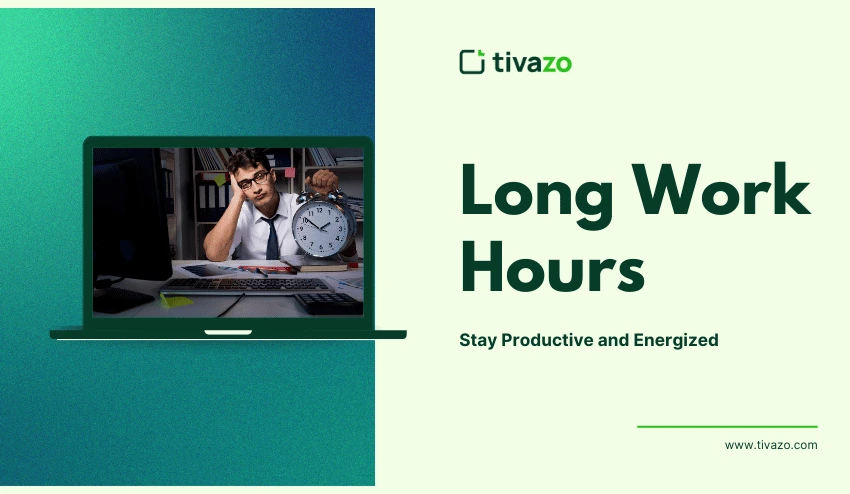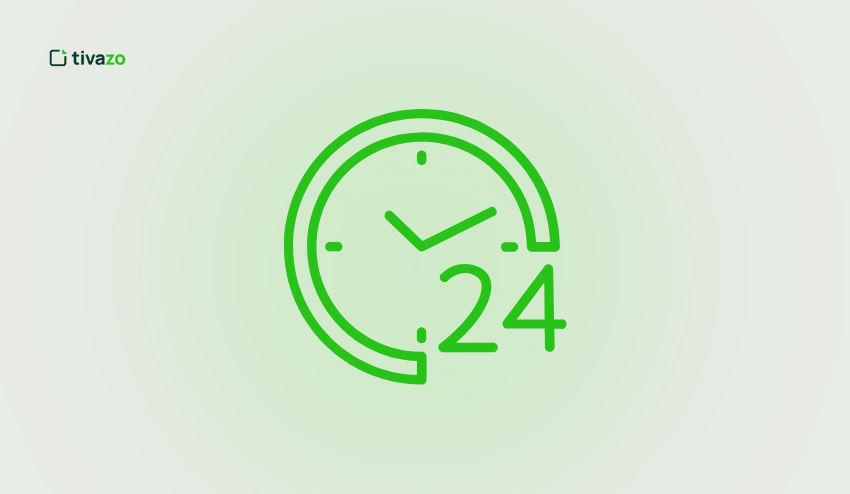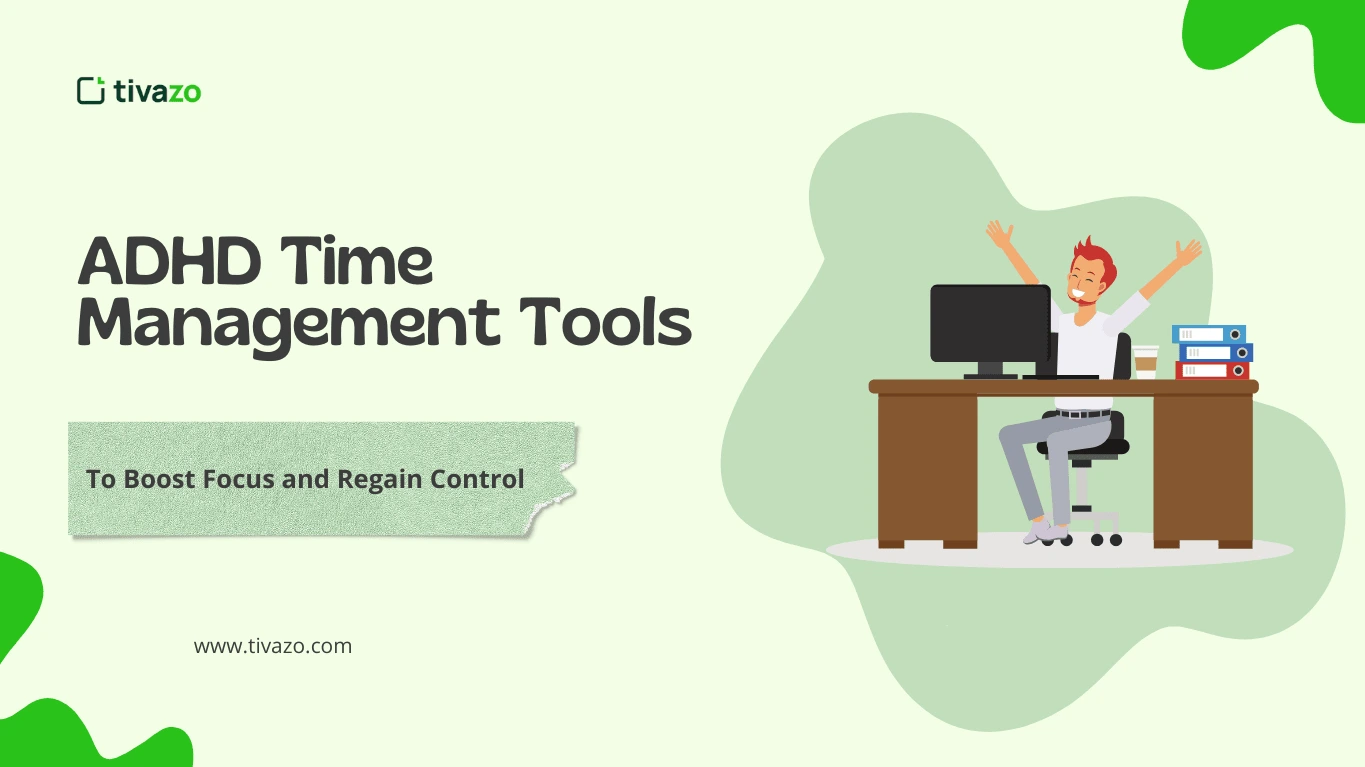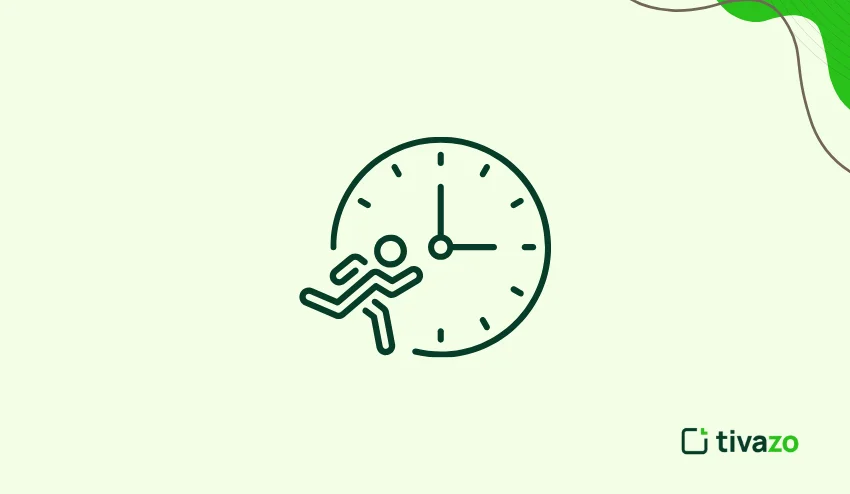Working long hours has become increasingly prevalent, especially in a more remote working world. While remote working is flexible, it can lead to more hours and blur the lines between work and personal time, putting you at risk of burnout. Working longer hours should not mean long hours get in the way of your health or productivity.
In this post, we will provide you with seven essential tips that will help you be productive, keep your energy high, and not suffer burnout during your long work days. From time management to prioritizing yourself, we will help you take care of yourself while working long hours for your success.
Key Highlights:
- Impact of working long hours on your body
- Why We Work Long Hours
- Tips to Stay Productive When Working Long Hours
- Work-from-Home Productivity Tips for Long Hours
- Break the Cycle of Working Long Hours
- Recover from Burnout After Work Long Hours
- Maintain Motivation During Working Long Hours
What does working long hours do to your body?
Working long hours can drastically change your physical and mental health. While working long hours may seem like a way to get more done, studies have shown that productivity falls after a certain amount of time. For example, one study demonstrated that working more than 50 hours a week diminishes efficiency, so if you are working more than that each week, the extra hours could be making you less productive.
The following points outline some key impacts on our bodies of working unusually long hours:

- Physical Strain: Sitting for long periods, poor posture, and lack of movement can cause back pain, headaches, and other health issues.
- Mental Exhaustion: Working without a break continuously causes stress, anxiety, and feelings of burnout.
- Poor Sleep: Late nights working disrupt sleep patterns, reducing focus and energy levels the next day.
Understanding the negative impact of working long hours is important to maintain productivity, maximize well-being, and increase your potential. If you can understand these negative impacts, then you can begin to implement healthier habits when working and protect yourself from the long-term consequences.
Why We Work Long Hours And Why It Needs to Stop
Even if many industries require long hours of work, the reasons for doing so may not always be valid. Employees feel compelled to work longer hours for many reasons, including overtime pay, career aspirations, deadlines, working with few or no people, etc. However, it’s important to understand the productivity myth that more hours worked equals more work done. As shown in the Stanford study above, productivity levels decrease after 50 hours of work per week.
Popular explanations for why we may work more hours than we would like:

- Overtime pay: The temptation of extra money is often an incentive to extend work hours.
- Ambition: Being perceived as committed to the job with the hope for promotion.
- Team Shortages: If your team is short-staffed, the work is not going to go away.
- Deadlines and Projects: The constant pressure of a fast-approaching deadline can force you to stay longer than planned.
Even though it might feel somewhat right to be putting in extra hours, it is valuable to recognize that the extra hours of work are affecting your performance and possibly your health. Working smarter and setting limits is essential to productivity and health in the long run.
7 Essential Tips to Stay Productive When Working Long Hours
Tips to Stay Productive when Working Long Hours are:

1. Keep Your Mental Focus Sharp
Distractions are one of the most undeniable productivity challenges when you have extended hours of work ahead of you. Distraction can happen in many forms, whether it’s a barrage of emails, instant messages, or your thoughts wandering. These distractions will drain your mental energy and make it more difficult for you to focus. Here are some tips on how to stop distractions and stay mentally sharp:
- Pomodoro technique: Work for 25 minutes and then take a 5-minute break. This is the Pomodoro technique.
- Focus apps: Use focus apps like Forest and Focus@Will to block distracting sites or help you stay focused.
- Create a distraction-free environment: Close your door, mute notifications, and clear your working area.
The less distracted you are, the more you will get accomplished during long hours of work.
2. Streamline Your Workflow
There is only so much time you can spend on activities that don’t bring value. By getting rid of the time spent on low-value tasks, you can spend more time on valuable work. Simplifying your workflow can enhance productivity because you can offload some of the repetitive actions that you need to perform. Here are some suggestions:
- Automate: Use time tracking tools like Everhour to track time, but also to automate some repetitive tasks to allow you time to focus on the creative space of your job.
- Delegate: Don’t be afraid to delegate lower-priority tasks.
- Optimize your routine: Use task management apps like Trello to keep track of tasks and avoid wasting time.
Through streamlining, you’ll have more time to do the function for which you were hired, and this will make working long hours productive.
3. Time-Block Your Day for Better Focus
Time management is really important when working long hours. The time-blocking method is a great approach to keep from getting sidetracked and manage a more productive to-do list. Here’s how to go about it:
- Prioritize Important Tasks: Block the times for your most important tasks for when you are most alert; generally, in the early part of the day.
- Batch Similar Tasks: Group similar tasks together to limit any context switching (this can be draining mentally.
- Use Time-Blocking Tools: Apps like Google Calendar can help you allocate specific time slots for each task, while keeping you structured.
Time-blocking is an easy way you organize your day better, manage your tasks more effectively, and limit burnout.
4. Take Regular Breaks to Recharge
Taking breaks is contrary to what you may have observed. However, breaks are necessary for productivity! Studies show that disassociating yourself from your work gives your brain a chance to refresh, relieving stress and improving performance.
- Get up and walk: Taking a few short nature walks, periodically or frequently, will help to restrict the physical strain on your body.
- Stretch and move: Various desk exercises can help prevent stiffness and muscle fatigue.
- Read something light: Instead of social media, read a book or an article unrelated to your work.
A break allows your brain to recharge its little batteries, giving you the ability to remain focused and productive throughout your long workday.
5. Stay Hydrated and Snack Smart
Your body requires fuel and hydrated to balance energy levels during the day. Stay hydrated and snack smarter to maintain energy levels.
- Hydrate: Drink water consistently throughout the day to ensure you remain hydrated to maintain concentration, too.
- Healthy Snacks: Opt for energy-boosting snacks like nuts, high protein fruits, or yogurt instead of sugary snacks or excessive caffeine.
- Avoid Energy Crashes: Avoid sugary snacks and excessive caffeine; excessive sugar consumption can lead to energy crashes, and you’ll be left feeling weak, fatigued, and sluggish
Staying hydrated and eating the most nutritious snacks can mean the difference in energy and focus, especially for working long hours.
6. Set Healthy Work-Life Boundaries
It is easy to have overlapping personal and work lives when spending long hours working. Therefore, having appropriate boundaries is key to your physical and mental health.
- Set work hours: Designating your start and end times will prevent you from always being “on.”
- Communicate with your team: Let your colleagues know when you are available and offline.
- Establish a routine: Having a specific ritual for the start and end of your workday will create order and a line between your work and personal time.
Work-life balance is essential for mental health and productivity – even while working longer hours.
7. Prioritize Rest and Sleep
Sleep is one of the biggest contributing elements to maintaining productivity during longer work hours. If your sleep goes unattended, it will impact your overall performance, focus, and creativity. Here are some tips to prioritize sleep:
- Set a sleep schedule: Go to bed and get up at the same time every day, including weekends.
- Avoid caffeine late in the day: This will impact your sleep cycle, and it can result in feelings of restlessness.
- Nap if necessary: If you’re feeling overwhelmed, a quick 20-minute nap can recharge your mind and body.
Restorative sleep is the bedrock of productivity. Don’t trade sleep for work.
Work-from-Home Productivity Tips for Long Hours
Working from home can be a dream and a nightmare, especially when your work hours creep into the distance. As you can imagine, the line between “me time” vs. “work time” can become very blurred, and you can struggle to remain productive while balancing work and personal life. So here are a few simple tips to ensure you are more effective when working from home, as well as remaining unmapped during those marathon work sessions:

- Create a dedicated workspace: Allocate a place for work, so your brain can stay in work mode.
- Minimize distractions: Tidy up distractions not tasks related to work
- Stay connected: Regular video calls and chats with your team can help you feel more engaged and less isolated.
How to Break the Cycle of Working Long Hours
Breaking the cycle of overworking yourself is essential for your health and success. Here are some things to consider while wanting to get back on track.

- Identify the Root Cause: What is leading you in the wrong direction and causing you to work long hours? Lack of resources, lack of realistic deadlines, lack of time management altogether?
- Set Better Boundaries: Have an open discussion with your manager about expectations if more work than you have time to finish is being put on you, make sure to agree on ways to help you work fewer hours.
- Prioritize Mental Health: If burnout is starting to creep in, address it early. Seek professional help or practice stress-relief techniques to recharge before it gets worse.
By following some of these recommendations, you will be taking an important step toward reducing the impact of working long hours and working to achieve a short everyday routine again.
How to Recover from Burnout After Working Long Hours
Burnout is a serious result of working too much time with little time to recover your physical and mental ability to think. If you are feeling overly stressed from working long hours, it is essential to make some changes today to recover, so consider these tips:

- Take a Break: Take a few days away from work responsibilities, disconnect physically and mentally to give your body and brain a chance to recover.
- Seek Support: Consider talking to a therapist or counselor to help address mental health concerns caused by burnout.
- Reevaluate Your Work-Life Balance: Change your schedule before you revert to the prior cycle of overwork.
Recovery is about giving yourself time to heal, establishing new boundaries, and developing support that will help you maintain your wellness and productivity in the long term.
How to Maintain Motivation During Long Working Hours
While keeping motivation while working long hours can seem hard, it is not impossible. Below are a few ways to keep your motivation at its height during those hours:

- Set Small Milestones: Break down bigger tasks into smaller tasks so that you can celebrate those smaller victories. This will help you keep your momentum.
- Visualize Your Success: Remember why you are working hard. Visualizing the endpoint in mind helps you stay focused and motivated throughout your tasks.
- Stay Positive: Keep a positive mindset by reframing challenges as opportunities for growth. This will help you push through the toughest parts of your day.
By focusing on the achievable milestones and remaining positive, you will be able to keep the motivation to complete those long work hours.
Conclusion:
Staying productive when working long hours is possible and can be accomplished through the right strategies. By following these 7 strategies and tips to maintain focus during long hours, energy, and being focused on yourself, you will minimize burnout while maximizing employee performance. Remember, productivity is not about working more hours, productivity is about working smarter and managing yourself effectively.




